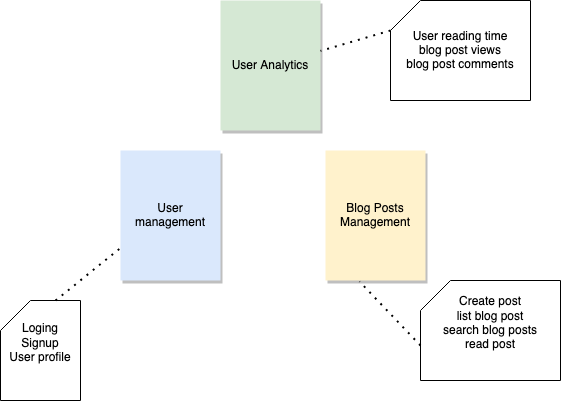Separation Of Concerns (SOC)
- this one is meant to help you group functions or modules into a service
- The point being if you’re designing a system that deals with several concepts, you want to group your functions into modules depending on what they have to deal with
Example
consider a blogging platform, a simple one, where your users can publish their blog posts
You could have a single system taking care of everything (user management, blog posts, analytics, and so on)
But if you want to follow the SOC principle, you could end up with something more in the lines of the following

- This is of course a very crude representation of the architecture, but the point being you can separate different responsibilities into different modules, this in turn allows for benefits such as
- Scaling individual functionalities becomes easier
- You can now easily consider scaling your user management module, because it is getting too much traffic, while leaving the rest of the platform untouched
- Making changes is easier now that your code is not tightly coupled
- You can make considerable modifications to how you manage blog posts without affecting any other section of the platform
- Your platform is now more stable
- If one of these modules crashes, then the system can potentially still function, with less features, of course, but the potential is there nevertheless
- Scaling individual functionalities becomes easier
- This is of course a very crude representation of the architecture, but the point being you can separate different responsibilities into different modules, this in turn allows for benefits such as
SOC can also apply to API design, library architecture and more
- It’s simply about having control over how you group functionalities in a way that makes sense to the users of those functionalities